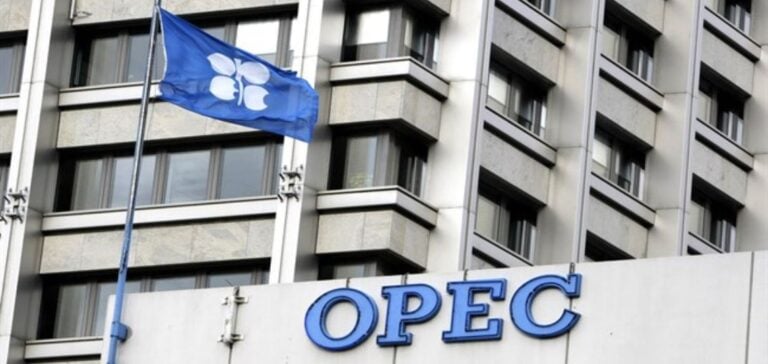Iraq, Russia and Kazakhstan, the largest overproducers in the OPEC+ alliance, have agreed to gradually reduce their oil production by 2.284 million barrels per day (b/d) until September 2025, according to an OPEC press release.
This decision is aimed at correcting the production surplus observed during the first half of 2024.
Assessments from secondary sources, including the Platts OPEC+ survey by S&P Global Commodity Insights, reveal that these countries have exceeded their respective quotas.
Iraq produced 4.22 million b/d in June, exceeding its quota of 4 million b/d.
Russia pumped 9.10 million b/d, exceeding its quota of 8.978 million b/d, and Kazakhstan produced 1.54 million b/d, against a quota of 1.468 million b/d.
These surpluses compromise OPEC+’s ability to stabilize the oil market, already affected by geopolitical tensions and sluggish global demand.
Phased Reduction Plan
Production cuts will be applied in a staggered manner, with monthly adjustments in line with the OPEC schedule.
Iraq and Kazakhstan will start in August with cuts of 70,000 b/d and 18,000 b/d respectively, while Russian cuts will begin in October.
Russian producers have the technical flexibility to adjust their production during the summer, enabling them to avoid cuts during this period.
The Russian Energy Minister confirms that Russia will fully respect the OPEC+ agreement and implement the necessary cuts to compensate for overproduction in the second quarter of 2024.
Russian producers have the technical means to adjust their production, excluding reductions for the summer of 2024.
Challenges for Iraq and the Kurdistan Question
Iraq attributes its overproduction partly to the autonomous Kurdistan region, over which the central government in Baghdad exercises limited control.
Current estimates place Kurdish production at around 250,000 b/d.
Jim Burkhard, Vice President of Oil Markets at Commodity Insights, points out that reducing Kurdish production is essential to adjusting Iraqi federal production, which represents a considerable challenge for Baghdad.
Impact of Compensation Plans on Voluntary Logging
OPEC+ members are also applying voluntary cuts of 2.2 million b/d, with a possible revision of these cuts from October onwards depending on market conditions.
The impact of compensation plans on voluntary cuts remains uncertain, but could influence discussions on an increase in production quotas.
Production cuts, combined with tensions in the Middle East and significant inventory declines in the US, have supported oil prices recently.
Brent Dated reached 82.09 USD/b on July 23, up around 8 USD/b since the beginning of June.
The next meeting of the Joint Ministerial Monitoring Committee, responsible for overseeing the OPEC+ agreement, is scheduled for August 1.






















